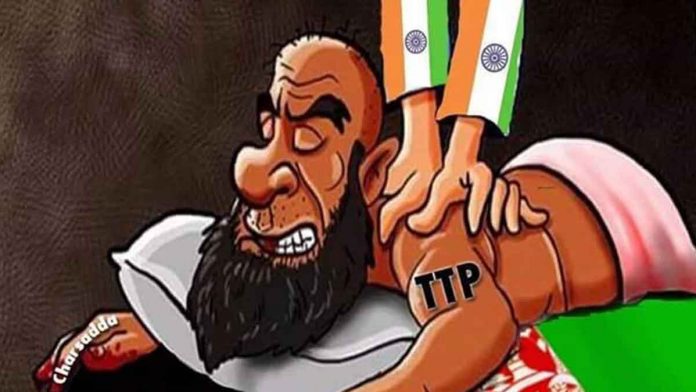
New Delhi: Days after social media platform Facebook announced a purge of over 100 ‘assets’ of the Pakistan Army, many of which were anti-India, it has now emerged that the other networking giant, Twitter, had taken similar action much earlier.
Twitter removed more than 2,600 Iranian accounts as of January 2019, some of which posted anti-India and anti-Narendra Modi content, along with possible attempts at misinformation.
The social media platform believes the accounts originated in Iran, with links to “state-backed information operations”.
“Boycott India”, “Modi is a terrorist”, “Modi is a donkey” (attributed to West Bengal chief minister Mamata Banerjee) — that’s how some of the posts read on many of these now-removed Iranian accounts. Some even posted pictures of wall graffiti, reading “Indian dogs go back”.
Asked how Twitter ascertained the state-sponsored nature of these accounts, Twitter said, “In August 2018, we were notified by an industry peer about possible malicious activity on their service about an attempted influence campaign we identified as potentially located within Iran…Since that time, through ongoing data science analysis, we have identified and suspended 2,617 additional malicious accounts that we believe may have origins in Iran.”
After the US presidential elections, social media platforms like Facebook and Twitter have been under intense scrutiny over their role in the election activities of the countries they operate in. The companies have been taking a more proactive role in investigating such allegations now.
India went to polls Thursday to elect its 17th Lok Sabha.
‘Anti-India sentiment is newer’
Talmiz Ahmad, a former Indian diplomat who has served as ambassador to Saudi Arabia, Oman and the UAE, said a country like Iran could be targeting India over a possible misunderstanding of its foreign policy.
“India is keeping its options open and aligning itself with certain other powers to signal that India has substantial assets so as to ensure its interests are not encroached upon. It may be that certain sections of Iran may have misread India’s intention and is using social media to indulge in unwarranted criticism,” Ahmad said.
Some of the posts from the removed accounts took digs at the ties between PM Modi and US President Donald Trump.
In one post featuring an image of Modi embracing Trump, the US president was shown to be saying, “Don’t cry my boy…Tell me what do you want??” To this, Modi was seen saying, “More False allegations on Pakistan”.
A member of the ruling Bharatiya Janata Party (BJP) said information operations in foreign countries have been anti-Modi for some time now, but the anti-India sentiment is “newer”.
“On various occasions, social media accounts, predominantly from Pakistan and several Arab countries, have been heavily involved in anti-Modi campaigns. In recent times, anti-India content like video messages have also increased from these foreign social media accounts especially after Pulwama attacks and the February Indian Air Force surgical air strike,” said Khemchand Sharma, member of BJP national IT and social media campaign committee.
Targeting India’s politics
Many of the Iranian accounts that have now been removed especially carried India-specific misinformation. One of the main themes of the posts was Kashmir — a longstanding issue between India and Pakistan.
One of the malicious posts read, “To divert the increasing rage of world from atrocities being done in Kashmir, Indian RAW & Ajit Kumar Doval are planning a false flag similar to the ones carried out in July and December 2015” — a false reference to India’s external intelligence agency, Research and Analysis Wing, and the national security advisor, Ajit Doval.
Another such post read, “kashmiris are standing with Pakistani flag against Indian brutality.”
Further, in a possible reference to Home Minister Rajnath Singh’s 2016 visit to Pakistan, a couple of posts sought to tell him that he was unwelcome in the Muslim-majority country.
“Indians are not welcome in Pakistan until Kashmiris get their right of self determination. Until then stay in your “gay hind”,” read one malicious post.
“We Pakistanis are in rage at Indian crimes in Kashmir. Go back!!!” said another, carrying a visual of violence against Singh.
Other contentious issues from domestic Indian politics — for instance, the 1948 union of Hyderabad with India — also featured in these posts.
“Referendum in Hyderabad (India) is the only feasible option. Democratic India must admit the mistakes of past and give the right of self determination to people of Hyderabad to choose sovereignty for themselves,” said one post.
In February, Pukhraj Singh, a cyber intelligence analyst who studies disinformation campaigns, wrote in a blog that the purpose of this coordinated Iranian campaign maybe “to consolidate the global Shia community, bring some cohesion into its ideology, and tap into its sentiments for political purposes”.
Singh added that “security agencies are advised to tread this path a little sensitively”, indicating India’s approximately 45 million Shia populace may feel an “affinity towards Iran” and that “it’s the natural outcome of a shared identity and heritage that spans history, geography and culture”.
Check out My543, our comprehensive report card of all Lok Sabha MPs.